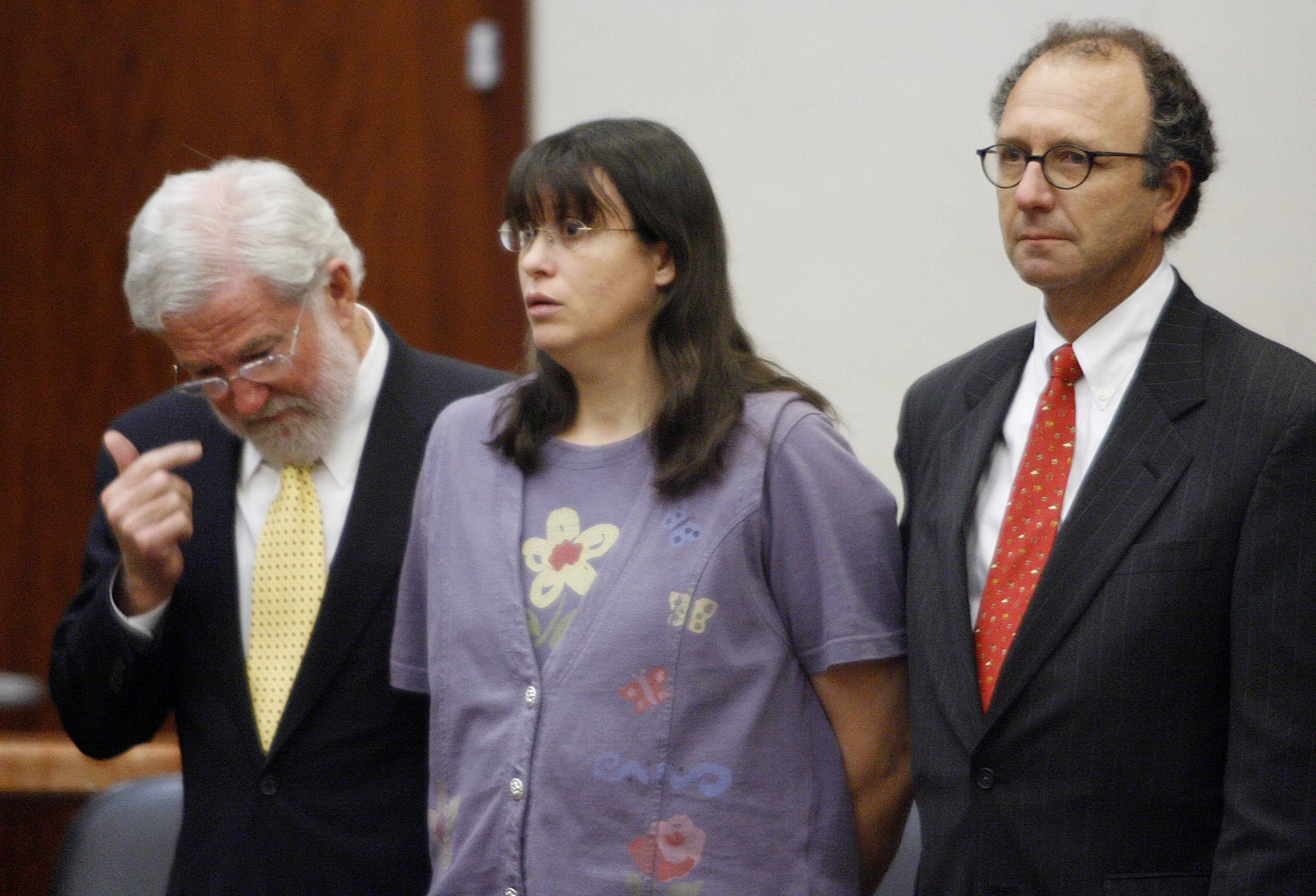Mother Andrea Yates who drowned her five children in a bathtub refuses own release from mental hospital
Andrea Yates confessed to killing her five children one at a time in a bathtub at her Houston home

Your support helps us to tell the story
From reproductive rights to climate change to Big Tech, The Independent is on the ground when the story is developing. Whether it's investigating the financials of Elon Musk's pro-Trump PAC or producing our latest documentary, 'The A Word', which shines a light on the American women fighting for reproductive rights, we know how important it is to parse out the facts from the messaging.
At such a critical moment in US history, we need reporters on the ground. Your donation allows us to keep sending journalists to speak to both sides of the story.
The Independent is trusted by Americans across the entire political spectrum. And unlike many other quality news outlets, we choose not to lock Americans out of our reporting and analysis with paywalls. We believe quality journalism should be available to everyone, paid for by those who can afford it.
Your support makes all the difference.More than two decades after she confessed to drowning her five young children at her Houston home’s bathtub, Andrea Yates has refused to face a hearing to determine if she can be released from a mental health facility.
Yates, now 57, is granted a review annually to leave the Kerrville state hospital in Texas where she has lived for more than 15 years, but denies herself the opportunity to leave every year, reported People magazine.
“She’s where she wants to be. Where she needs to be,” her defence attorney George Parnham said last year.
“And I mean, hypothetically, where would she go? What would she do?”
Yates “grieves for her children” every day and often watches home videos of her kids. She spends her time in the facility making aprons, cards and gifts so she can sell them anonymously, the report said.
The funds collected from the sales are sent to the Yates Children Memorial Fund founded by the defence attorney and his wife Mary. The memorial is a tribute to women’s mental health, especially for those who face postpartum effects.
Mr Parnham, who keeps in constant touch with Yates, said she is happy now.
She was convicted of capital murder by a jury in 2002 and was sentenced to life imprisonment with a chance of parole after 40 years.
Mr Parnham, however, appealed and helped overturn the verdict. Yates was then found not guilty due to insanity in a 2006 retrial.
She confessed to methodically killing her five children one at a time in the bathtub of her home in 2001 when she was suffering from severe postpartum depression, postpartum psychosis and schizophrenia.
In her confession, she said her two-year-old son Luke was drowned by her first, after which she drowned three-year-old Paul and five-year-old John. Yates had told police she had laid them out on a bed and wrapped them in a sheet after drowning them.
But when she was putting down her six-month-old lifeless baby girl, her eldest son Noah entered the bedroom and asked, “What’s wrong with Mary?”
He ran before his mother could answer, but the chase was brief as Yates dragged him back to the bathroom and held him under water until he died too.
After murdering her five children, Yates rang up the police and asked them to come to her residence. She also called her husband and asked him to come home. When he asked Yates if anyone was hurt, her husband said she told him: “Yes... the children. All of them.”
Yates, then 36-year-old, was a stay-at-home mother with a history of mental illness and post-partum depression.
The police said she had described the horrifying events in “a zombie-like fashion” in a videotaped confession.
Russell Yates, her husband who worked as a computer engineer at NASA’s Johnson Space Centre, said she had suffered from severe post-partum depression following the births of the last two children and had been prescribed Haldol, an anti-psychotic drug usually administered to counter deeply delusional symptoms such as hearing voices.
According to health care officials, Yates had twice attempted death by suicide.
Join our commenting forum
Join thought-provoking conversations, follow other Independent readers and see their replies
Comments